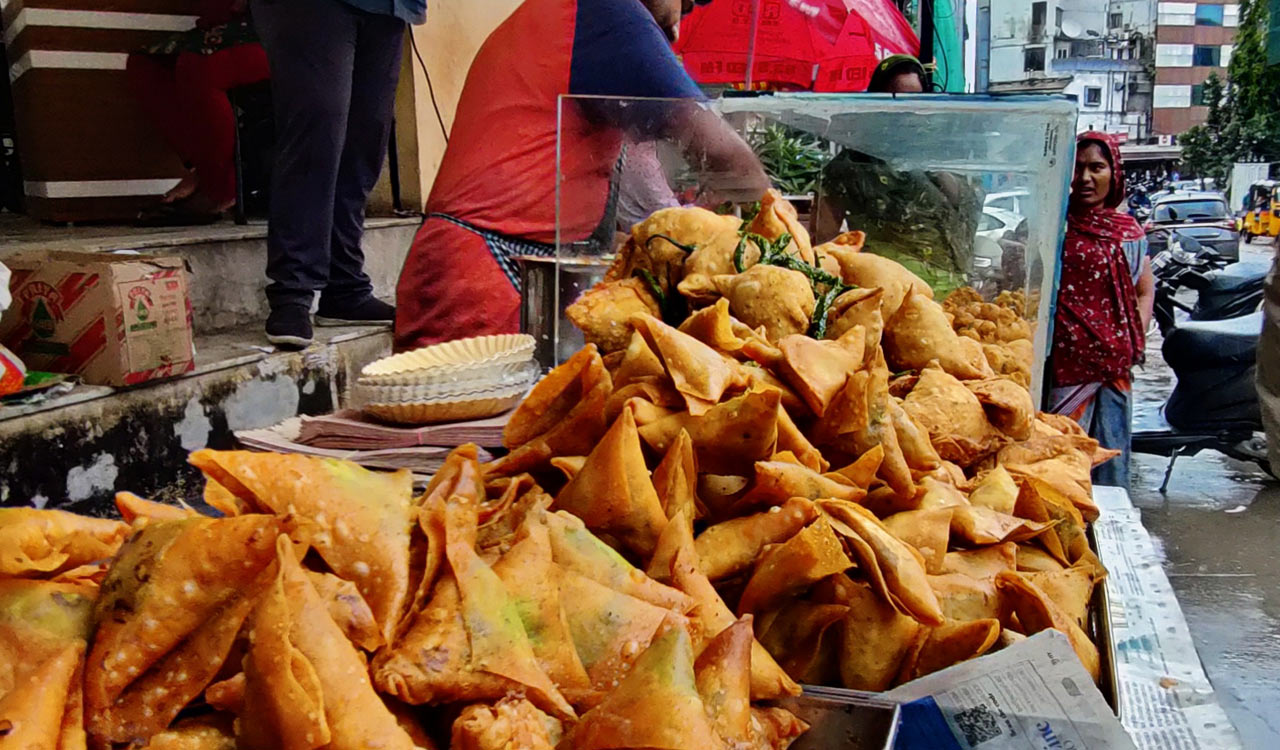As restaurants, cloud kitchens, street stalls increase, FSOs forced to bite off more than they can chew
Published Date – 27 January 2024, 11:13 PM
Photo: Anand Dharmana
Hyderabad: Dead cockroach, lizard’s tail and locks of hair – these are the few things uncovered in biryani served at hotels in Hyderabad just in the past few weeks. The alarming unsanitary conditions at the city restaurants and street food stalls have left consumers concerned and frustrated.
But it is not the first time such lapses in food quality were recorded. In fact, it is a persistent problem that reflects the imbalance in the number of eateries in the city and the number of Food Safety Officers (FSOs) to undertake quality checks.
According to the GHMC website, there are 23 FSOs, which still leaves a deficit of seven if we assign one each for the 30 circles. These officers are tasked with monitoring food establishments, checking compliance and issuing registration for food business operators, investigating complaints, and picking samples, in addition to maintaining records.
While the number of FSOs has increased in comparison to the mere four a decade ago, the current count continues to lack for the corporation governing 650 square kilometres and a population of over 80 lakh!
With an abundant number of restaurants, cloud kitchens, street vendors, private and government hostels, supermarkets, and other establishments selling meals, the officers are forced to bite more than they can chew, resulting in unchecked and subpar food quality.
As per the Food Safety and Standards Authority of India (FSSAI), apart from the checks conducted while issuing or renewing food licences, all establishments should be inspected at least once a year. The inadequate manpower makes this a daunting challenge, inclining authorities to conduct checks only when a complaint is raised.
If that is the state of established eateries, roadside stalls selling pani puri, noodles, and other dishes are mostly out of the ecosystem, making them oblivious to the food safety standards.
These gaps in the administration pose an ongoing and grave threat to the lives of city dwellers, leaving them susceptible to consuming non-edible substances and facing the risk of food poisoning.
However, repeated efforts to reach the relevant authorities in GHMC for action being taken up to monitor quality of food at eateries in the city, were met with no response.
Social media to the rescue
Citizens encountering a lack of hygiene or poor quality food have limited avenues to register their complaints. To file a grievance with the GHMC helpline 040-21111111, one needs to know the Circle where the eatery is located and the FSOs might visit the establishment in two working days.
With that, only those complaints posted on X (formerly Twitter) tagging the accounts of GHMC and Assistant Food Controller seem to be taken into consideration, prompting swift action.




